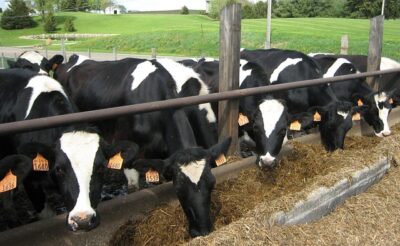World Farm Animals Day
In this Article...
Celebrating Ethical Choices for Farm Animals
World Farm Animals Day, observed every year on October 2nd, is an occasion to reflect on the welfare of farm animals and consider how our choices can positively impact their lives. This blog will highlight the importance of supporting local, organic, and free-range farming practices. These choices not only promote humane treatment but also enable individuals to make a positive difference in the lives of farm animals.
Local Farming: A Path to Ethical Choices
- Community Engagement: Buying locally sourced products allows you to connect with farmers in your community. It fosters a sense of trust and accountability between consumers and producers, ensuring that ethical practices are upheld.
- Reduced Stress on Animals: Local farms often prioritise the well-being of their animals. Reduced transportation distances mean less stress on animals during transit, leading to improved animal welfare.
- Access to Open Spaces: Many local farms provide animals with access to open fields and natural environments, allowing them to exhibit their natural behaviours, like grazing or foraging.
Organic Farming: A Commitment to Natural Living
- No Synthetic Chemicals: Organic farming prohibits the use of synthetic chemicals, hormones, and antibiotics. This commitment ensures that animals are not exposed to potentially harmful substances and supports their overall health.
- Higher Animal Welfare Standards: Organic certification often requires higher animal welfare standards. This means that animals raised on organic farms have more space, access to the outdoors, and improved living conditions.
- Healthier Diet: Organic animals are typically fed organic feed, which is free from genetically modified organisms (GMOs) and synthetic pesticides.
Free-Range Farming: Allowing Freedom of Movement
- Enhanced Living Conditions: Free-range systems provide animals with the opportunity to move around and engage in natural behaviours. They have access to outdoor spaces, which is essential for their physical and mental health.
- Improved Animal Welfare: Animals in free-range systems experience less stress and have a better quality of life compared to those in confined environments.
- High-Quality Products: Many consumers find that products from free-range animals, such as eggs and poultry, have superior taste and quality due to the animals’ healthier lifestyles.
On World Farm Animals Day, let’s celebrate our power as consumers to make ethical choices that support farm animal welfare. By choosing to buy locally, organically, and free-range products, we can ensure that the animals involved in food production are treated with respect and provided with humane living conditions. These choices not only align with the principles of ethical farming but also allow us to connect with our local communities and promote animal well-being. Together, we can contribute to a world where farm animals lead healthier, happier lives.



